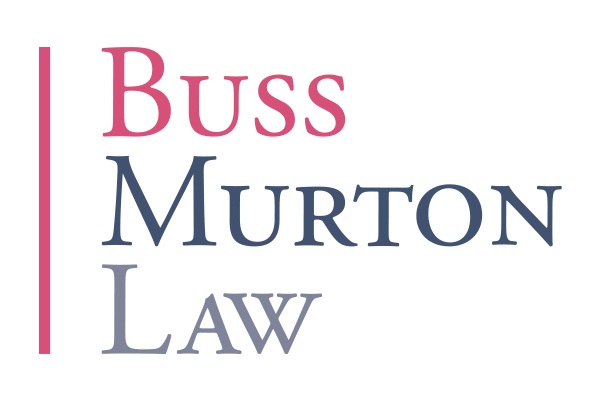Andrew Linton, Buss Murton Law (Part 1): Running a modern law firm with traditional values; strategy and culture.

In this two-part Buss Murton Law special, Extech Cloud spoke to Andrew Linton, Managing Partner, and Alex Smith, Head of Finance and Operations, on how to run a modern law firm with a traditional heritage.
In part one, Andrew discusses how Buss Murton Law strategically positions itself to take advantage of opportunities that deliver superior service to its clients. In part two, Alex explains how the firm then capitalises on those opportunities and successfully delivers change.
One challenge law firms face is the need to run like businesses. In essence, there is little difference between a law firm and any other company: It needs to be profitable, win new clients and compete against competitors. Law firms must also prepare for the future, while facing the daily challenge of delivering short-term results.
Buss Murton Law has a proud heritage, having been established over 300 years ago in 1713. Having run like a traditional partnership for many of these years, Buss Murton Law became a limited liability partnership and then in 2016 became an alternative business structure (ABS). However, this decision wasn’t without much deliberation.
Deciding to become an ABS meant a detailed consideration of a number of factors, but ultimately we saw it as an opportunity to diversify our workforce, bring different skillsets in and operate in a different manner to a traditional law firm.
The biggest challenge for law firms has traditionally been the provision of quality legal advice; now it is not only the provision of that quality advice but doing so against an ever-evolving compliance background and at all times ensuring that the work being undertaken works for the firm, and that is a change of mindset for a lawyer. If you are a lawyer that only wants to provide quality legal advice, then you need to be in a blended team that can provide the other skillsets necessary to generate a successful business.
https://extechcloud.com/wp-content/uploads/2019/05/andrew-linton-profile-web.jpg
Andrew Linton is Buss Murton Law’s Managing Partner and has been since 2015 after joining the firm in 1995. He is the head of the Employment Department, acting for both employers and employees. Andrew specialises in providing advice to employers on all aspects of employment law ranging from employment contracts for their senior executives to group redundancy arrangements.
Since making the leap of faith to a modern ABS, Buss Murton Law and Andrew have taken advantage of three opportunities which are helping mould the firm into the organisation it is today: faster decision-making, capitalising on technology and utilising the strengths of younger lawyers.
Faster decision-making
Consumer demands will change over time. Whether it’s in response to sociocultural shifts or mass adoption of technology, all businesses must adapt to their environment.
A lot of traditional firms are partnerships; we’re an ABS. With that comes a different mindset. What we have tried to do is blend responsibilities and roles with those who manage the business. So, it’s easier to sit down and have discussions around IT or compliance, and we’ll have a working group who act on the actions of that group. As a result, decision-making is much quicker.
One area where law firms often come under pressure, is how quick they are to adapt to change and seize opportunities. In a traditional partnership, where there must be mass consensus, it can create a challenging structure to operate quickly.
We need the flexibility and speed to react to an opportunity. If a firm has a long drawn-out decision-making process, by the time you’ve even got to the third time talking about it, the opportunity is gone. However, if you have a team of specialists, then when an opportunity arrives, the right people are ready for it.
We’re trying to build a culture here where people are looking for opportunities; for themselves, for their branch or for the firm.
For Buss Murton Law though, it is still imperative that the necessary people are brought along the journey.
What we’ll do is try to make it inclusive and bring people in when needed. So that means when we’re discussing a change, it’s inclusive and not imposed; and the change is implemented without undue delay. And that is helping us manage change because we are involving those involved with that change.
Capitalising on technology
One of the benefits to quicker decision-making is the ability to adapt to your environment faster than your competitors. One area that progresses more quickly than many can keep up with is technology.
Technology is like the law; it’s changing all the time. That comes back to culture and mindset. It’s all about culture and understanding who’s in front of you and asking, how can I help you?. We need to keep investing in our staff, using technology to provide advice and stay open and alert to the opportunities.
Using technology to serve clients better is vital and is its ultimate function, but environmental changes can make it challenging for some firms to embrace technological progress.
But in the same way, we need to understand that there are some aspects of our service that can’t be tailored, due to compliance, for example. However, we use technology and consult with our staff to ensure that where we can, we are as flexible as possible. That is a constant challenge. If you don’t embrace that challenge, it will be difficult. Technology is an ongoing journey and will remain an ongoing journey.
Capitalising on technology, especially legal IT, is a strategic function and shouldn’t be reactive. It’s a planned and proactive element of an organisation which is implemented to serve its clients better.
Typically, clients used to instruct the same lawyers as their parents, but technology has opened that up and increased competition. It means now there is constant change. We need to embrace a culture where there is a discussion around that change. It’s not about hearing about the next thing then implementing it. It’s about understanding it, then working with the right people to effectively deliver it.
Developing future lawyers
The people that work in an organisation define its culture. Developing the right culture for a firm can strengthen its strategic position due to diverse world views.
You want young people coming up through the business challenging the technology, and at the same time the more experienced people embracing it.
That needs the older part of the workforce who are happy to embrace technology to share their experience with a younger, and perhaps more tech-savvy generation, so as to keep the business moving forward.
Having a blend between an experienced and youthful workforce adds not only to a well-functioning workforce, but also adds to the client experience.
We have staff that match our client demographics. There are staff who are in their later years and those that are just coming into the workforce, and the good thing about that is the younger staff are not afraid to challenge the means by which legal advice can be provided.
Running a modern law firm with traditional values requires a shift in mindset. As Andrew mentions, the biggest challenge law firms face is running the organisation like a business. It requires being agile and open to opportunities. In the case of Buss Murton Law, they have aligned their organisation to remain flexible and agile, to ensure they can capitalise on opportunities which further the best interests of their clients.
Our next article on Buss Murton Law will focus on effectively implementing change and the delivery of organisational initiatives which enable opportunities to become a reality.
Back to News & ResourcesRelated news
Book a free online consultation
We love talking to businesses and understanding what they do and what they need. If you'd like to book a short, no obligation consultation, please provide us with your details. We understand that you may already have an IT company, consultant or team, so all contacts are treated as completely confidential. A fresh new IT approach could begin here...
Keep connected
Newsletter signup
News & Resources
Get latest updates, downloads and white papers.

